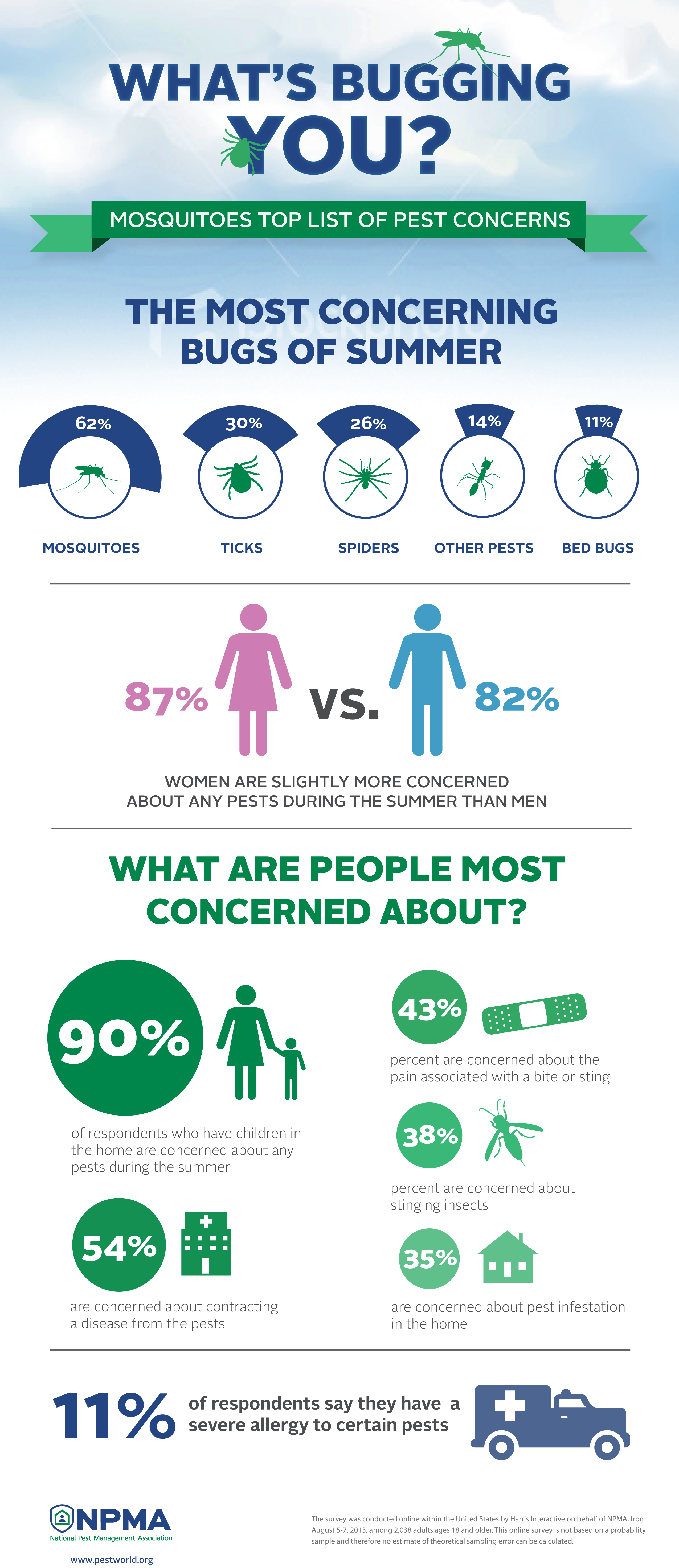Pest-Proofing Your Garden: Tips For Keeping Outdoor Bugs At Bay
Pest-Proofing Your Garden: Tips For Keeping Outdoor Bugs At Bay
Blog Article
Created By-Vang Merritt
Visualize your garden as a haven, a location of tranquility and beauty. However, https://www.usda.gov/media/blog/2021/03/29/keeping-airline-passengers-and-wildlife-safe-aphis-and-its-partners-work of outdoor pests can quickly disrupt this picturesque picture. What happens if there were simple yet effective ways to keep these unwelcome visitors at bay and secure your garden sanctuary? By following drywood termite treatment of sensible tips and executing all-natural strategies, you can create a harmonious outdoor area where your plants can grow undisturbed.
Natural Pest Deterrents
To keep pests far from your yard naturally, plant fragrant herbs like mint and lavender. These great smelling plants not just add appeal to your yard but likewise act as reliable pest deterrents. Insects like mosquitoes, flies, and also some garden-damaging pests are pushed back by the solid fragrances discharged by these natural herbs. Simply putting them tactically around your garden can aid produce a natural barrier against unwanted bugs.
In addition to mint and lavender, consider growing various other natural herbs like rosemary, basil, and lemongrass to further enhance your garden's pest-proofing capabilities. These natural herbs not just serve as natural repellents yet also have the added advantage of working in food preparation or crafting home made treatments.
Strategic Plant Placement
Think about the format of your yard and the kinds of plants you have to tactically put them for optimum pest-proofing effectiveness.
Begin by grouping plants with similar resistance to parasites with each other. By doing this, you can develop a natural barrier that deters pests from spreading throughout your yard.
Additionally, putting pest-repelling plants like marigolds, lavender, or mint near more prone plants can aid safeguard them. Tall plants, such as sunflowers or corn, can act as a shield for much shorter plants versus bugs like bunnies or ground-dwelling pests.
Bear in mind to leave sufficient room between plants to improve air circulation and lower the threat of diseases that pests may bring.
Additionally, consider growing strong-smelling herbs like rosemary or basil near vulnerable plants to confuse insects' detects and make it harder for them to find their targets.
Reliable Insect Control Techniques
For combating garden insects successfully, executing a multi-faceted insect control strategy is vital. Start by motivating natural predators like birds, ladybugs, and praying mantises to help maintain insect populations in check. Introducing plants that draw in these valuable pests can aid in bug control. Additionally, exercising great yard hygiene by removing particles and weeds where bugs might hide can make your yard much less hospitable to unwanted visitors.
Take into consideration making use of physical barriers such as row cover materials or netting to safeguard susceptible plants from parasites like caterpillars and birds. Using organic chemicals like neem oil or insecticidal soap can also be effective versus specific bugs while being less dangerous to helpful bugs and the atmosphere. It's crucial to turn your crops each period to avoid the buildup of pest populaces that target particular plants.
Routinely examine your plants for indicators of insect damage so you can act without delay. By incorporating these techniques and remaining cautious, you can effectively manage garden pests and take pleasure in a thriving, pest-free garden.
Conclusion
So, there you have it - with the right techniques, you can keep pesky outside insects far from your yard and aid your plants thrive.
Did you recognize that growing mint has been shown to fend off insects and other insects, decreasing the demand for harmful pesticides by approximately 60%?
By incorporating all-natural deterrents and wise planting techniques, you can develop an attractive and pest-resistant yard oasis for you to appreciate.
